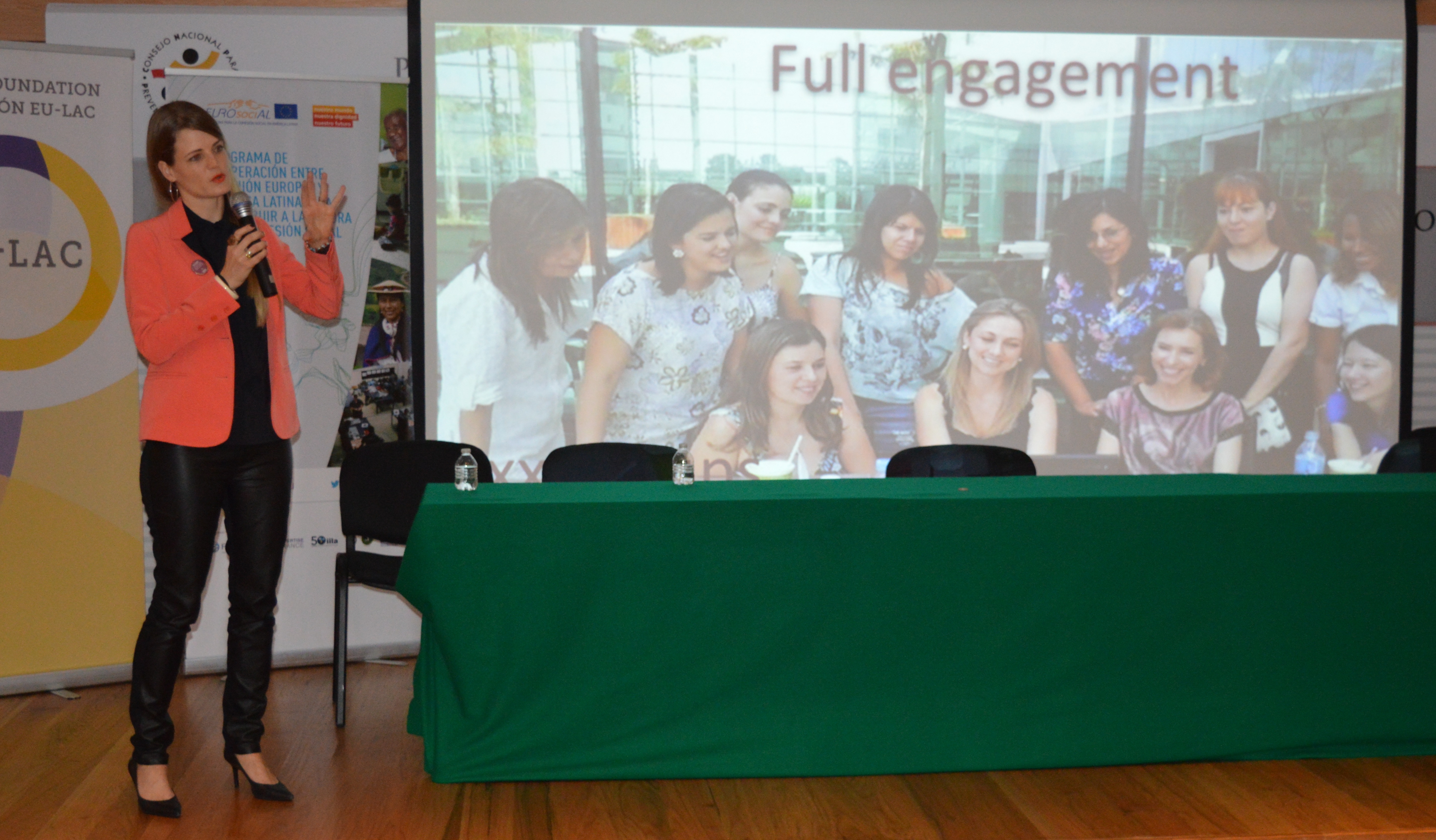EUROsociAL+ and the EU-LAC Foundation presented the best Euro-Latin American practices in Mexico City together with the Ministry of Labour and Social Security, Inmujeres, Amexcid and the European Union Delegation

With the purpose of analyzing the experiences of public, private entities and civil organizations that have managed to promote a better insertion of women in work spaces in Latin America, the Caribbean and the European Union, an alliance between the European Union programme EUROsociAL+ and the EU-LAC Foundation launched a call in both regions to identify the best practices, which culminated in their sharing in Mexico City within the framework of the international seminar on “young women’s labour insertion: from good practices to innovative policies”.
During the event, organized in close collaboration with the EU Delegation in Mexico, the Ministry of Labour and Social Security, the National Institute for Women (INMUJERES) and the Mexican Agency for International Development Cooperation (AMEXCID), 10 significant practices were identified in several countries for their objectives, results and replicability, from Uruguay, Brazil, Bolivia, Colombia, Nicaragua, Mexico, Spain, Italy and France.
The Ambassador Martha Ortiz de Rosas Gómez, Head of the Ministry’s International Affairs Unit, stressed that “the implementation of the Mexican Law on Labour Equality dictates increasing the productivity and competitiveness of business organizations through the recognition of equality between women and men”, an action that is also supported by EUROsociAL+. As an example, Ortiz Rosas pointed out that these actions have reduced the unemployment rate of Mexican women, from 5.1% in 2013 to 3% in July 2017.
For his part, Juan Manuel Santomé, Director of the EUROsociAL programme, and Paola Amadei, Executive Director of the EU-LAC Foundation, reiterated their interest in exchanging experiences and reflecting on key issues related to the labour insertion of women, with a determined commitment to support public policies with a gender focus.
Civil society institutions and organizations from 16 countries in Europe and Latin America also saw three labour experiences first hand with women’s groups in order to improve their equality of access to the labour market. They exchanged social and labour truths with a group of students from the technical baccalaureate school in Santa Fe, in the talent pool of the Federal Communications Institute and in a company certified with the labour equality standard.
Programa EUROsociAL+ / STPS México



